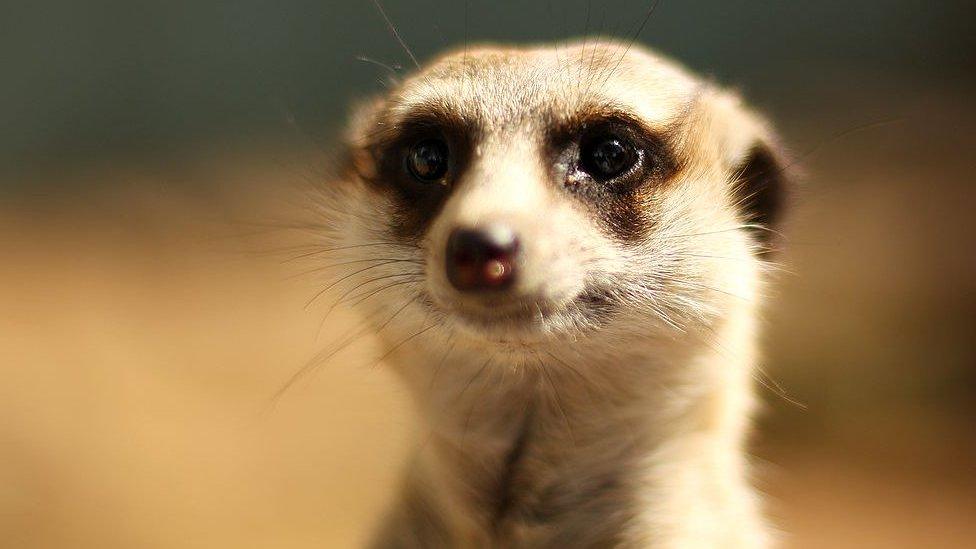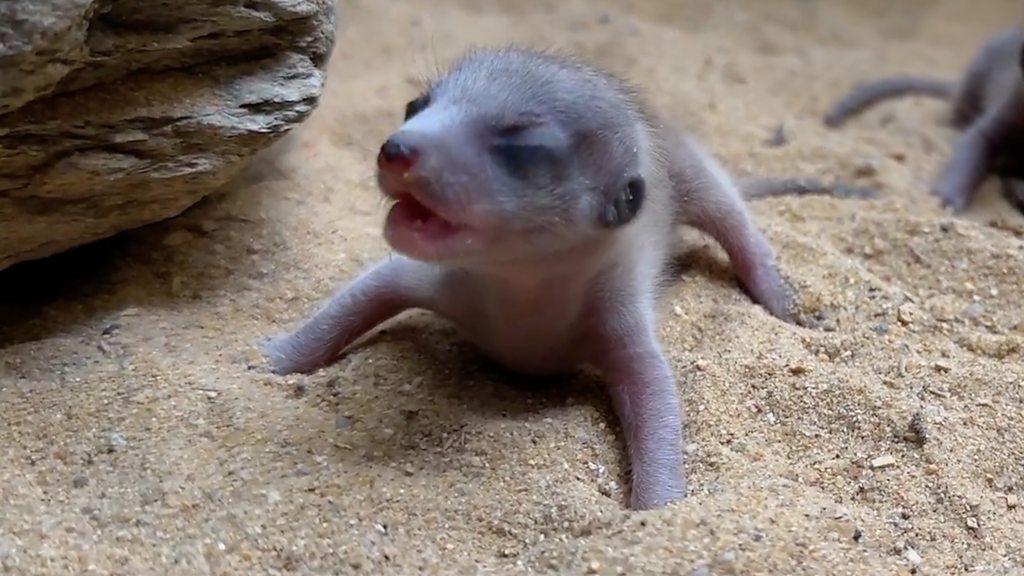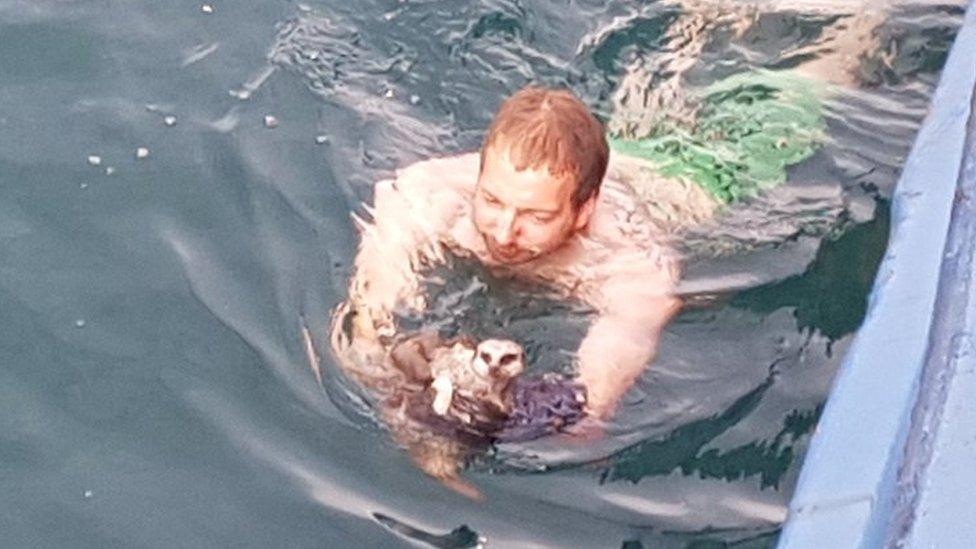Five meerkats dead in suspected dye poisoning at Philadelphia Zoo
- Published

All five meerkats at Philadelpha Zoo have died within a matter of days, leading zoo officials to suspect that a dye may have poisoned them.
The small members of the mongoose family from southern Africa all became sick and died within less than a month.
Named Nkosi, Lula, Nya, Kgala, and Ari, they all were brought to the zoo in 2013 as siblings.
A necropsy is pending, but officials believe they may have accidentally consumed a dye used to mark them.
"We suspect that they may have accidentally consumed something toxic," said Amy Shearer from Philadelphia Zoo.
She said the dye used to mark and differentiate animals, Nyanzol-D, is specifically thought to be the culprit.
"We have used this animal dye... for over 30 years," she told CBS News.
Rachel Metz, the zoo's vice-president of animal wellbeing, said staff were struggling to cope with the deaths.
"Our staff spend more time with these animals than they do with their own families or even their pets at home," she told Philadelphia ABC affiliate Action News, external.
"So there's a real legitimate bond they feel with the animals, and obviously they're devastated right now."
The dye was used on the meerkats on 1 June, according to the Associated Press. One was found dead 30 minutes later and the four others starting showing signs of sickness shortly after.
Zoo officials are now coordinating with the US Department of Agriculture and the Association of Zoos and Aquarium to identify what caused the deaths of the animals.
Philadelphia Zoo, which says it is "America's first zoo", first opened in 1874 and currently houses more than 1,900 animals, according to its website.
Elsewhere, and in more cheerful news, the Smithsonian's National Zoo in Washington DC announced last month that it was celebrating the birth of meerkat pups for the first time in 16 years.
The three pups are two weeks old, and are starting to open their eyes and explore their habitat. Keepers say mum Sadie has been nursing the newborns, and that they seem healthy and strong.
Watch tiny newborn meerkats explore zoo enclosure
Related topics
- Published28 February 2022

- Published25 May 2023

- Published20 June 2022
